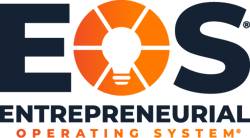I traveled to Peru one summer to help build a school. My job was to construct the baño (bathroom). The area didn’t have electricity so we did everything with hand tools. As I dove into the job, I realized that it would take us three to four times longer without electricity. It was frustrating for all of us. We knew what we needed to do but we didn’t have the right tools for the job. This same thing happens every day in business. People are given a task but don’t have the right tools to accomplish that task. One of the biggest resources or tools that your people need is your time and attention. Not to take on their issue as yours but to help them think it through their task at hand and build their confidence so they can tackle their job.
The “80% Rule”: Making Good Decisions Easier and Faster
Written by Mark Abbott on October 21, 2014
More often than not, we have to make decisions with less-than-perfect information or insight. That’s just life, especially as a leader. The biggest common denominator of great leaders and great leadership teams is the ability to make good decisions with less-than-perfect information.
Topics: Implementers, EOS
Great employees stay at companies, not for the money or the benefits, but for the culture. Employees want to work at companies where it feels great to come to work. They come in early and hang around at the end of the day because they love being around other great employees. Your culture is built on your core values. People love people who share their values. For an example of one such company, see my post on the Netflix culture here.
Topics: Implementers, EOS
In the 19th Century, anthropologists believed that Polynesia was settled by people who migrated there from Southeast Asia. This became the conventional view until a young Thor Hyerdahl challenged the experts. His contention, based on evidence gathered while living with the natives, was that Polynesia was settled by people from the east, specifically South America. In 1947, despite much criticism, he built the raft KonTiki and sailed 4300 miles across the vast Pacific Ocean from Peru to Polynesia, proving beyond a doubt that it was possible. In 1970, he dispelled another long held view that Columbus discovered America. He believed that the ancients had made the voyage centuries before Columbus and proved it by building and sailing Ra II across the Atlantic Ocean from Morocco to Barbados, a journey of 3270 miles.
Topics: Implementers, EOS
Recently I was in a meeting where, after a long discussion, a decision was finally made to take action. The person who was most vocal in arguing against the action was asked whether or not he supported the decision. Even though it was apparent to the team that he was not on board, he said “I’m fine!” The owner called him out and asked him “Yes or no, do you support the decision?” The dissenter hesitated. The owner went on, “Whenever I hear someone say they’re fine what they mean to say is that they’re: Frustrated, Irritated, Not bought in, and Exasperated. So, is that what you meant by ‘Fine’?”
Topics: Implementers, EOS






